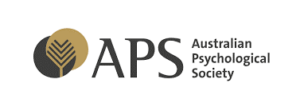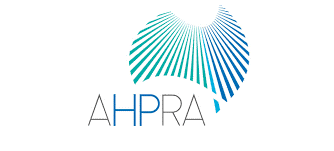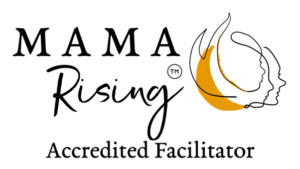Our Therapeutic Choices Include
Managing stress
Helping you identify, manage, and reduce your stress through a number of evidence-based approaches.Managing anxiety
Working with you to address the root cause and the ‘why’ behind your anxiety.Self-esteem and self-confidence
Explore the beliefs that are holding you back, navigate through the blockages that may be present.Grief and loss
Identify where you’re at in the grieving process to understand the ‘why’ behind what you’re feeling.Women's Health and Perinatal Support
Explore your value system and what it means to be a woman and/or mother.Therapies
We will work together to address and manage whatever issue you are facing.
Schema Therapy
Many of our early experiences lead us to develop mental frameworks that persist throughout life and impact on our relationships, our thoughts, our feelings, our physical sensations, and the lens through which we view the world.
As children, we all have certain needs that are typically met by our caregivers or the significant adults in our lives. If these needs are not met effectively, we develop schemas as a way of coping with that situation. Schemas can develop and lay dormant for many years without us being conscious of them, becoming activated and triggered in future situations (e.g., in relationships).
The mental framework of schemas includes core beliefs, patterns of behaviour, a mindset and attitude, and a whole experience we construct. The ways we cope because of these schemas, can be either healthy (adaptive), or unhealthy (maladaptive).
Until we have an understanding of our schemas, we can be at the mercy of them because they run like the software of a computer; they’re the operating system and they can heavily influence how you interpret and make meaning of events.
After administering a questionnaire to understand your primary schemas, we will work together using various approaches, including imaging rescripting, inner child therapy, safe place imagery, chair work, and behavioural pattern breaking, to unpack the ways in which these schemas were developed and why.
My approach is gentle, in that I will assess the readiness of the client to embark upon this journey of self-discovery, exploration, and change in order to live a more meaningful, connected, and authentic life.

Emotional Freedom Technique (EFT)
Emotional Freedom Technique (EFT), otherwise known as ‘tapping’, is a mind/body-based acupressure method that works on the meridians of the body following Traditional Chinese Medicine (TCM).
Meridians can be likened to the energy highways that flow throughout the human body. Their purpose is to transport essential energy or ‘chi’ to each of our organs, and it is the free flowing of this energy that is integral to our daily health and wellbeing.
It is very common however, for these energy pathways to become blocked through various life situations that bring discomfort and emotional distress. These blockages can cause ailments, and as a result, a person’s emotional state can be greatly impacted (think stress, anxiety, physical pain – just to name a few).
Tapping is a complementary tool that works on both the mind and the body. By tapping on a number of meridian (acupressure) points, its aim is to alter the direction of energy and free up any blockages to bring the mind and body back into harmony. Science is proving that it has a calming effect on the stress centre in our brain (the amygdala) and clinical trials have proven its effectiveness in lowering one of our primary stress hormones (cortisol) after just one hour of tapping.
If in our sessions together, we feel that tapping would benefit the situation and issue you are presenting with, I will guide you through the tapping technique, the phrases to repeat, and how you can use this tool in your everyday life. The training I have completed in this area so far includes ‘EFT and TFT Tapping Practitioner Certification (Accredited)’ through Udemy, hours of self-practice, and I will be completing further training through the Evidence Based EFT Organisation.
Disclaimer: Tapping is not a magic wand, and just like any other tool, you may find little to no relief in its use with your current issue. In this scenario, just like any other, we would change course and adopt a different set of tools that you may find of greater benefit.

Acceptance and Commitment Therapy (ACT)
Acceptance and Commitment Therapy (ACT) was founded in 1982 by Steve Hayes and in recent decades Dr. Russ Harris has been a leading pioneer in popularising the treatment modality and theoretical framework in the helping profession. Dr Russ Harris is best known as the author of The Happiness Trap. I attended the ACT workshop with Dr Russ Harris himself in June 2019, with this therapy now very central in my work with clients.
ACT, pronounced as “act” is a mindfulness-based behavioural therapy that, at its core, is about ‘creating a rich and meaningful life, while accepting the pain that inevitably goes with it.’
Through your childhood and various experiences in life, were you ever told to ‘toughen up’ or ‘get on with it’ and ‘just keep pushing forward’? While these attitudes may have been well-intentioned at the time, if the feelings as a result of the experience or event weren’t validated, it leaves many adopting and internalising the belief that what they authentically feel is unacceptable. Therefore, the norm becomes to suppress, deny, and run away from the difficult thoughts and feelings, whether that be through distraction or escaping reality in some way. But how effective is this really? If it were a useful method then would we see rising rates of stress, anxiety, depression and other mental and physical health conditions?
ACT takes a different approach in that it develops psychological flexibility and teaches people to transform their relationship with their thoughts and feelings (including the painful and unpleasant ones) and to embrace all the parts of us that make us human. In a nutshell, it involves using mindfulness to connect with the present moment and to recognise and attend to live thoughts instead of trying to avoid or get rid of them. This is integral to the practice of self-acceptance.
Along with a number of therapeutic processes of ACT, a significant component is living life according to core values – where decisions and behaviours are guided by what’s most important to you. This can provide awareness of how the behaviour is impacting you, and result in a greater commitment for change.
Using experiential exercises and a number of practical ACT tools, we will work together with the aim to address and manage whatever issue you are facing. By taking you toward the person you want to be, ACT is a therapy that can empower you for life.

EMDR Therapy
Like the deep-rooted patterns formed in our early years, traumatic experiences and persistent stress can embed themselves in our psyche, shaping our reactions, emotions, and even physical sensations. Eye Movement Desensitization and Reprocessing (EMDR) therapy is a powerful approach to healing these deep-seated wounds.
Trauma, whether big or small, can leave a lasting imprint on us. EMDR therapy is designed to address these impacts by activating the brain’s inherent ability to process and integrate traumatic memories. This therapy uses bilateral stimulation, often through eye movements, to mimic the psychological state that we enter during REM sleep, which is our brain’s natural way of processing experiences.
In EMDR therapy, we don’t just revisit traumatic memories; we actively transform their influence on the mind and body. The process involves recalling distressing events while receiving bilateral sensory input, like side-to-side eye movements. This dual attention allows the brain to reprocess the memories, reducing their emotional intensity. It’s as if we’re updating old, unhelpful files in the mind.
In my practice, I approach EMDR with sensitivity and care. Recognizing the vulnerability involved in addressing traumatic memories, I ensure a safe and supportive space for you to navigate this healing process. The pace and progress of the therapy are always attuned to your comfort and readiness.
EMDR therapy can lead to a significant reduction in emotional distress, a reshaping of harmful beliefs, and an enhanced sense of personal strength and tranquillity.
As your guide in this transformative journey, I am committed to supporting you every step of the way. Our goal is not just to alleviate the symptoms of the past but to foster a state of wellness and self-empowerment that permeates all aspects of your life.


